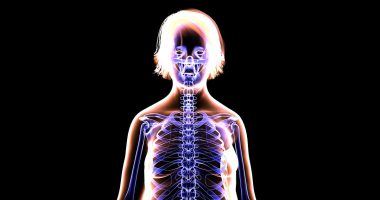Share this @internewscast.com
Around eight million Brits who take a commonly prescribed medication have been warned to take care in the heat. As the Met Office predicts temperatures of 35C in parts of the UK this week, concerns have been raised about the effect of hot weather on certain drugs.
According to experts at Mental Health UK, certain antidepressants can make people more sensitive to heat. This can leave you more vulnerable to heat exhaustion and heat stroke.
These include selective serotonin reuptake inhibitors (SSRIs), serotonin-norepinephrine reuptake inhibitors (SNRIs), and antipsychotic medication, which can cause temperature dysregulation.
The organisation explains: “This is because they interfere with the hypothalamus, the part of the brain responsible for temperature regulation.
“This is often listed as a potential side effect, so it’s important to check your medication’s accompanying leaflet if you’re concerned, you can discuss this this with your prescribing doctor, psychiatrist or pharmacist.”
Some examples of medication this includes are:
- Antipsychotic medications such as amisulpride (brand name Solian), aripiprazole (Abilify), clozapine (Clozaril, Denzapine, Zaponex), lurasidone (Latuda), olanzapine (Zypadhera, Zyprexa), paliperidone (Invega, Xeplion), quetiapine (Seroquel, Seroquel XL), risperidone (Risperdal, Risperdal Consta), chlorpromazine, flupentixol, and haloperidol
- Tricyclic antidepressants such as amitriptyline, imipramine, doxepin, mianserin, and trazodone
- SSRIs such as sertraline, citalopram, and fluoxetine
The side effects to look for
Mental Health UK warns that some medications increase sweating, meaning you are more likely to become dehydrated, while some decrease sweat production.
Find out about the symptoms you need to watch out for and get health advice with our free health newsletter from the Daily Express
It continued: “Medications can also impair your ability to think clearly, or simply change your tolerance to hot temperatures.”
Signs of heat exhaustion can include:
- Feeling sick or being sick
- Being very thirsty
- Dizziness
- Tiredness or weakness
- Headache
- Excessive sweating
- A high temperature
- Clammy skin, or a change in skin colour
- Fast breathing or heartbeat
- Cramps in the arms, legs and stomach
- Irritability (particularly in children)
- Delirium (often in older adults)
It is vital to read and retain the information leaflet for any medication you take. “To understand any medication that you may be taking in both the short-term and long-term, you can go to the NHS’s medication directory to find out how they work, the possible side effects, interactions and common questions,” it says.
To cool someone down
If someone has heat exhaustion, the NHS says you should follow these four steps:
- Move them to a cool place
- Remove all unnecessary clothing like a jacket or socks
- Get them to drink a sports or rehydration drink, or cool water
- Cool their skin – spray or sponge them with cool water and fan them. Cold packs, wrapped in a cloth and put under the armpits or on the neck are good too
You should stay with them until they’re better, which should take around 30 minutes.
However, you should call 999 if you or someone else have signs of heatstroke, including:
- Still being unwell after 30 minutes of resting in a cool place, being cooled and drinking fluids
- A very high temperature
- Hot skin that’s not sweating and might look red (this can be harder to see on brown and black skin)
- A fast heartbeat
- Fast breathing or shortness of breath
- Confusion and lack of coordination
- A seizure or fit
- Loss of consciousness
Data has shown that a total of 8.6 million patients in England were prescribed antidepressants in 2022-23, with the amount having almost doubled since 2011.

















